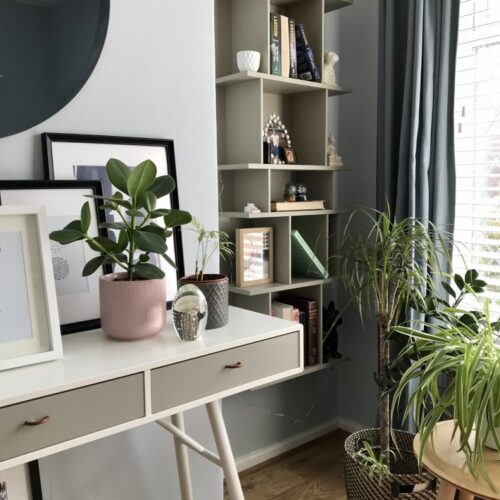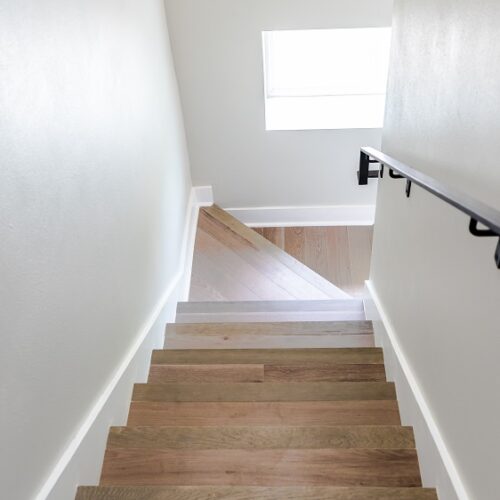House hunting is something we all face at various points in our lives. Wouldn’t it be simple if we fell in love with a property, decorated it then lived happily ever after. But it is so much more complicated than that! Yes it can be exciting, but also time consuming and stressful. But by going into it with your eyes wide open, you can avoid the many pitfalls.

Luckily, there are a few things worth knowing that may just help ease the pressure. I’ve partnered up with Your Legal Friend to share some tips and advice, as well as some of the hidden dangers to be aware of, when it comes to finding your next home:
Top House Hunting Tips
- Use a mortgage calculator and budget planner to make sure you can afford to live in the house you want
- If you are a first time buyer you could take advantage of Help To Buy
- Set an amount of money aside for inevitable repair fees for when you move in
- Do your research on the area – schools if relevant, risk of flooding, crime rates etc. Also visit the property at different times of the day/night and observe the comings and goings to get a feel for the neighbourhood
- Ask questions when you view; things like how old is the boiler, have there been any neighbour disputes etc.
- Get a survey (a homebuyers report or for an older property a full structural survey) but also thoroughly check the property yourself – pull back old carpet to look for signs of damp or decay, check the outside walls for cracks, the roof for damaged tiles etc.
- Get recommendations for conveyancers/solicitors
- Check which fixtures and fittings are being left behind and get it in writing.
Hidden Dangers to Be Aware Of
Asbestos – older properties may contain asbestos so this is something to be aware of and a survey should flag up any potential issues. If you want an old garage containing asbestos removing, this has to be done carefully by professionals. Your Legal Friend are specialists in asbestos claims and are keen for house hunters and new homeowners to be clued up about the dangers of asbestos in residential properties and be safe when buying, decorating or renovating.
Lead Paint – houses built before the 1960s potentially could contain lead paint. Young children and pregnant women should not be exposed to lead paint. It can be safely painted over to seal it – it is only when you sand the paint that particles are disturbed and dispersed into the air where they can be breathed in. So if you need to remove it, there are special products you can apply to do it more safely. This is a government leaflet with advice about dealing with lead paint.
Outdated Electrics – old fuse boxes and sockets would indicate that the electrics haven’t been updated in a long time. If the property hasn’t been re-wired in the last 20-30 years, it would be advisable to get it done. Call in an electrician to check it out.
Gas Appliances – Carbon monoxide poisoning is a deadly danger with no taste, colour or smell that can be detected. It’s vital to get the gas boiler, gas fires and pipes checked before moving in. The property should have a Gas Safety Certificate which shows that the gas appliances have been serviced annually by an engineer from the Gas Safe Register.
Hidden Fees – be aware of all the fees you are liable for when moving into a new property, such as stamp duty, removal costs, leasehold etc. so there are no nasty surprises!
Damp – damp problems in a house can get worse if left untreated and can impact on our health. Look for signs of mould on walls or ceilings, condensation on windows, black mould on grout between tiles etc. Your survey should flag up any issues that need resolving. It may be a case of a small patch that needs simple weatherproofing, or it could be a bigger problem with structural implications, so do not ignore any warning signs.
Subsidence – cracks in walls are not unusual in a house, especially an older property, however when its down to subsidence that’s a much more serious matter, indicating that the foundations of the house are sinking. If subsidence is detected or suspected, specialist advice is needed before you make any property decisions.
So as you can see, there’s a lot to consider when house-hunting! Whether your future pad is a falling down doer-upper or a showhome standard, ready to walk in property, this major life event is something you want to approach in a prepared manner to ensure it goes smoothly. So do your homework, ask questions, check everything and get it in writing – and you’ll reduce the risk of falling foul of hidden dangers.
© Copyright 2017 Antonia, All rights Reserved. Written For: Tidylife


Leave a Reply